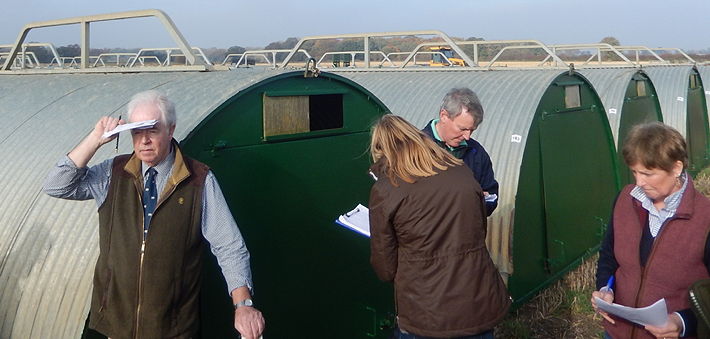Woodhead Bros, who are a wholly owned subsidiary of Morrisons Supermarket, have just announced the bold move of increasing their weekly contribution price by a massive 30p/kg to 180p/kg and a company spokesman has confirmed that their intention is to move domestic pig prices closer to COP levels.
This initiative should provide a target for their competitors to aim for and follows up on earlier undertakings by Morrisons that they would do all they possibly could to help the British pig industry at this time of crisis, especially as far as the imbalance between COP levels and pig meat prices is concerned.
With all of the other challenges currently being faced by the industry and in particular feed costs going through the roof following on from the tragic chain of events unfolding in Ukraine, it is essential a major price increase and a fairer balance must be achieved within the overall supply chain.
Woodheads are only one of two large-scale abattoirs who do not have their own in-house pig production herds and are therefore 100% reliant on third party producers.
This move could well be the first step in a radical reassessment of how the whole pig supply chain operates, especially as far as its sustainability is concerned in future years.
Although pig prices are continuing to move in producers’ favour, there is a long way to go before enough of this filters through to keep producers in business for much longer due to the enormous losses which have been crucifying the viability of so many large and small pig units throughout the country.
Much to producers’ dismay, the latest SPP for the week ended March 11 only having moved by a miniscule 0.41p to stand at 138.51p whereas EU mainland prices are continuing their meteoric rise up by another 10 Euro Cents this week to stand at 1.85 EUR, which in real money is equivalent to an estimated 148p/kg.
As far as spot bacon demand is concerned something of a two tier trade is emerging with some processors prepared to pay in the 120p – 125p/kg region to regular sellers, but one off loads of heavy weight baconers are still a drag on the market with very little available space even at comparatively low prices.
Cull sow values continue on their jet propelled rise up by another 8p/kg this week selling in the 66p – 70p/kg range and medium weight culls are now averaging over £100 per head, which is a county mile better than their rock bottom values two months ago of little more than £35 per head! The Euro has remained relatively static trading at 84.01p on Friday.
Weaner prices are generally holding with the latest AHDB 7kg ex farm average quoted at £32.85/head, but buyers are still extremely wary of rearing and finishing costs which continue to soar due to the unfolding disaster in Ukraine.
Unfortunately, despite better finished pig prices on the table margins are still being completely overwhelmed by feed costs and as a result spot loads of weaners remain very hard to shift and will do until a clearer picture of the future profitability or otherwise of rearing and finishing pigs can be established.
Note, the following ingredient prices need to be treated with extreme caution in a highly volatile market.
As far as feed prices are concerned, there is still very little positive to report with UK feed wheat quoted at £299/t for April delivery and £252/t for September.
The weekly UK spot ex farm feed wheat average of £292/t remains completely unsustainable and almost too dear to feed to racehorses! Feed barley futures deals are being agreed in and around £290/t for April and £238/t for September.
Proteins remain eye-wateringly expensive with Hipro soya traded at £512/t for April and £482/t for November – April 2023.
Rapemeal values also remain extremely bullish in a volatile market traded at £419/t for April.
And finally, the same basic problem continues to challenge the pig industry, which is how can production costs be cut and pig production levels increased to try and remove some of the fifty shades of red ink from the whole supply chain balance sheet, but sadly there are still more questions than answers.
Food inflation is definitely here to stay as far as human appetites are concerned, but unless some of the benefits are passed back to producers it is difficult to see how they can continue to meet their own soaring feed and production costs.
In the meantime any relief that comes along in the form of further pig prices initiatives may well be a case of too little too late. As far as the UK pig industry is concerned, it could soon be a case of use it or lose it.




